20 Jan FLAVA Workshop: “Making Technology Have Relevance in the Language Classroom: Moving Towards Proficiency”
The Foreign Language Association of Virginia (FLAVA) presents webinar workshops during the school year, and I was able to attend the one whose title is above, presented by Dr. Kathryn Murphy-Judy, founder of BOLDD (Basic Online Language Design and Delivery) and a professor of French at VCU. Dr. Richard Kuettner of Washington and Lee University invited her to speak to foreign language educators on November 7, 2013.
First Dr. Murphy-Judy talked mainly about VAFLPO (the Virginia Foreign Language Professional Framework), which was created by Dr. Lisa Harris who strives to increase digital proficiencies for language learners. Strand A in VAFLPO focuses on preparing students by creating a safe environment. The following link is helpful: http://bit.ly/19AFL1f. As foreign language teachers, we discussed and shared our ideas to make a classroom policy on using digital technology. Some of the rules might be: no bullying, no put downs, stay on task, refrain from using online translations, list the sources you take from the Internet, never share personal information, and update security settings.
The professor also shared with us some astounding statistics from a 2012 report on Teens and Technology: 78% of teens have cell phones, 23% have tablets, 95% use the Internet. The Pew Report examines how teens share information. 84% of teens share their interests, 91% post a photo of themselves, 53% share their email addresses on their posts. Twitter, Instagram and Google Plus are also growing quickly.
Strand B helps students achieve their daily performance and helps them with learning. A teacher can learn ways of teaching to advance student learning as described in www.p21.org and the ACTFL Foreign Language Annals. An Introduction to LinguaFolio was also mentionned.
Strand C focuses on how to develop collaborative practices that help students learn to build proficiency. We were encouraged to study Edutopia online.
Finally, the Technology Strand stresses how students and the teacher can use Learning Tools to help with student learning. For beginners they might use Digital Voice recordings, Student Response Systems and International Keyboards. For intermediate students we can use Wikis and Skype. In addition, an educator can encourage her students to take a survey to share with her what their own favorite types of technology are! (To take the survey teachers can go to: http://tinyurl.com/FLAVAwebinar) For example, the teachers who took the survey during the webinar said that they enjoy Flickr, blogs and Web 2.0, podcasting, CLEAR, EDMODO, ANIMODO, Google Voice, Glogster, Pinterest, and Facebook. Teens enjoy texting, Facebook, iphones, laptops, playing games, and snapchatting.
We also talked about words that describe the successful digital language learner. They describe students as engaged, innovative, connecting, curious, experimental, undaunted, inquisitive, loving to explore, and eager to play with new tools. Some of the digital techniques that were discussed were: a digital storytelling app to present and share a story, a Photostory, creating a video of a skit (use slideshare.com), education chatrooms, collaborative reading (see the MIT Nota Bene PDF Annotator), DIIGO (where you can share readings with other people abroad), ‘Vine’ (6 second videos on mobile Apps via Twitter), and Instagram (with 15 second videos that students can share). For presentations we learned about Jing, Prezis, Explain Everything for IPads, and Slideshares. We were also told about ‘eComma’ (where students learn to read together because reading can be a wonderful social experience).
All in all, the workshop was quite interesting, and I encourage FLAVA members and nonmembers to take these wonderful workshops.
Christine Hoppe teaches ESOL at Granby High Evening School for Adults in Norfolk, and she has taught French, Italian and ESL to students of all ages for over 25 years in the states and abroad.


No Comments